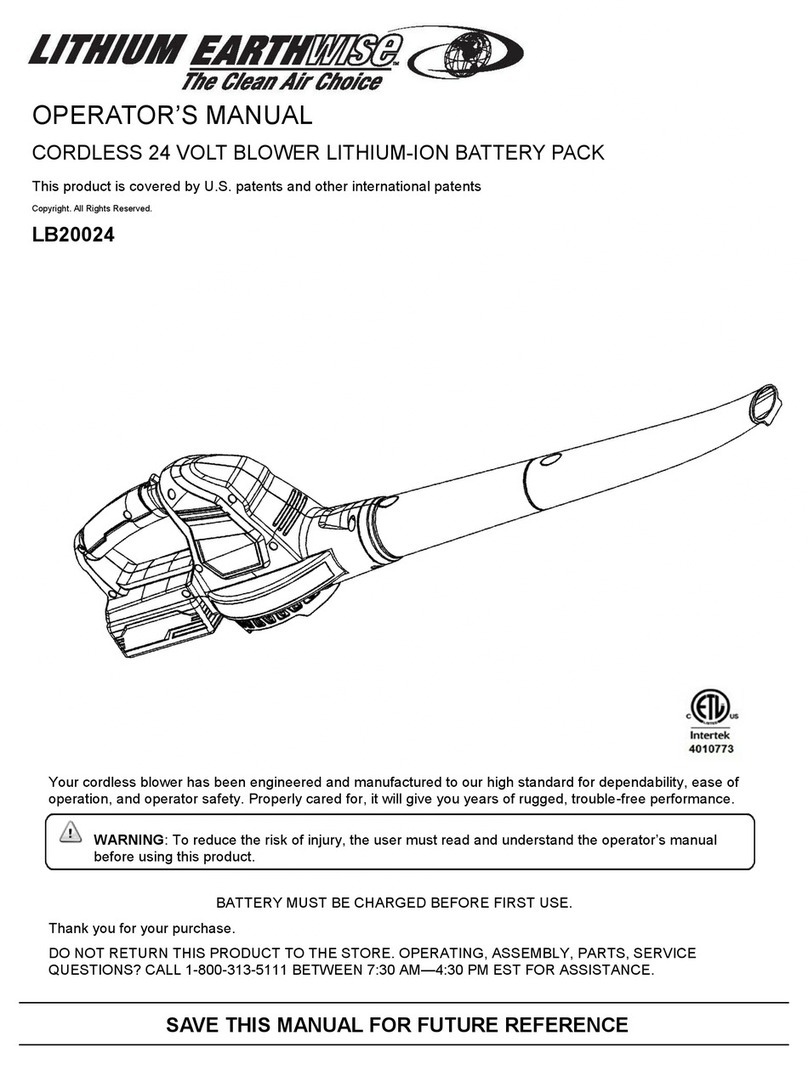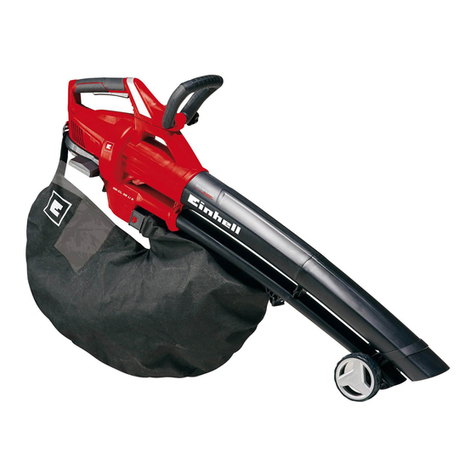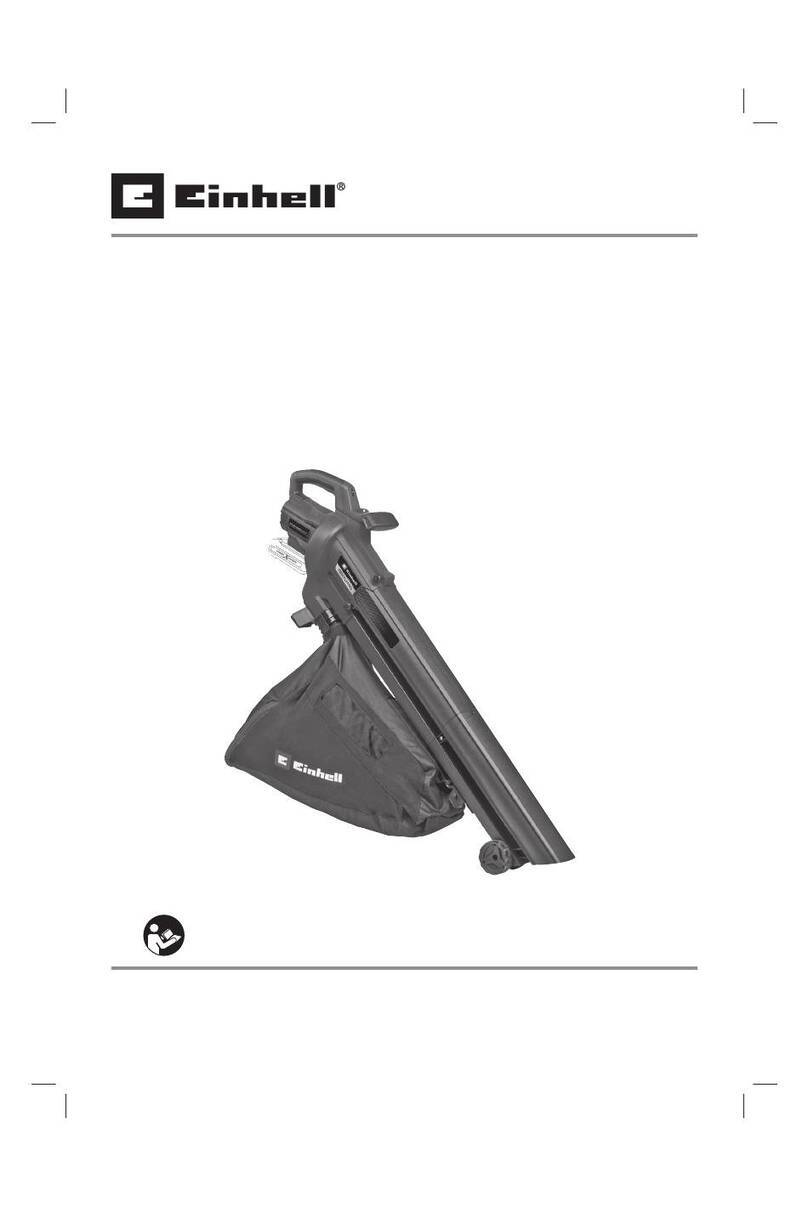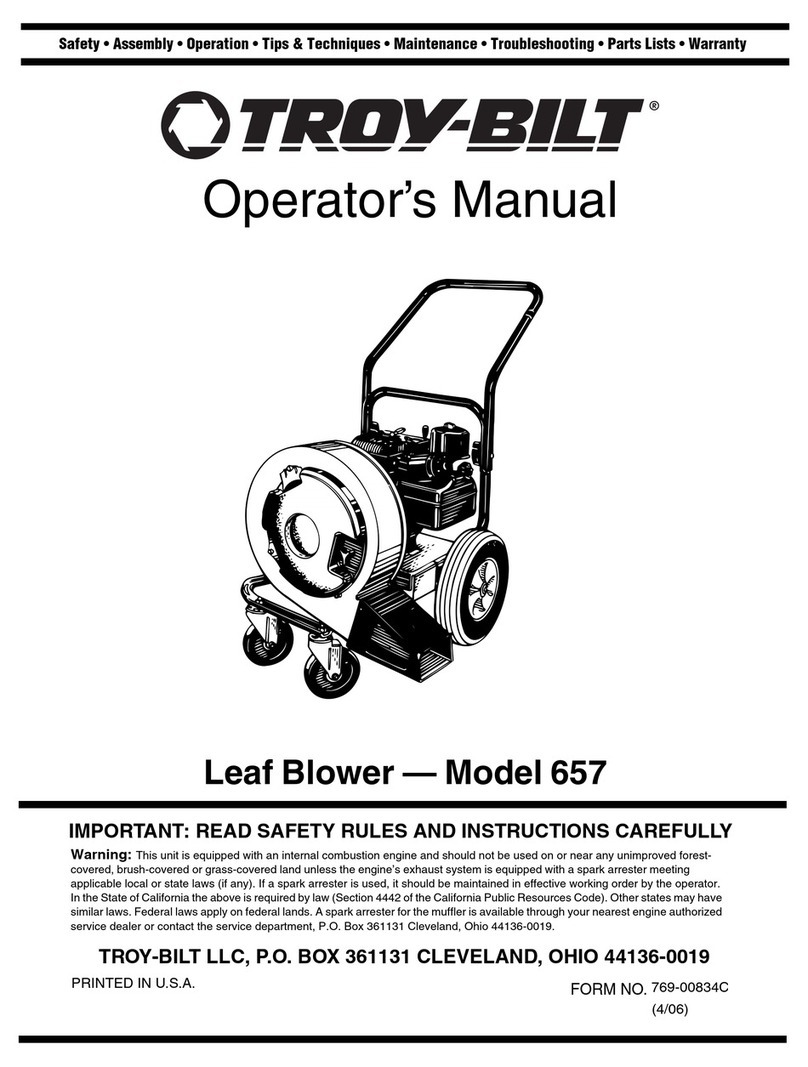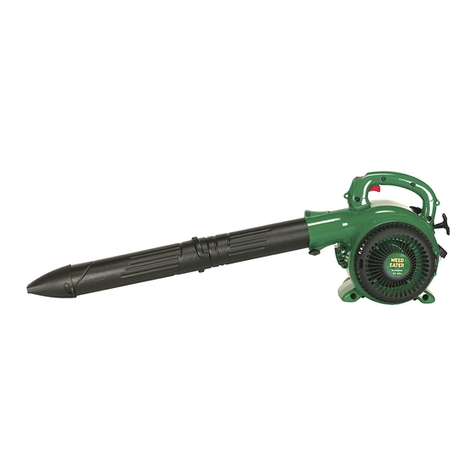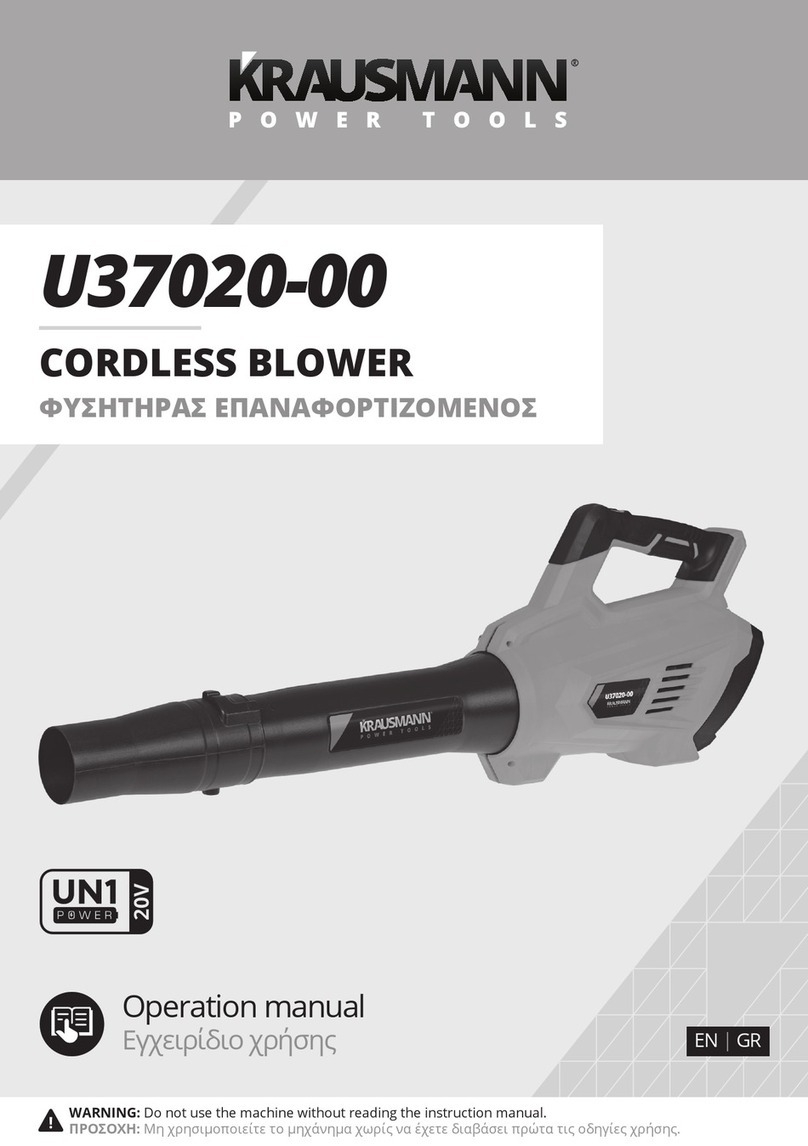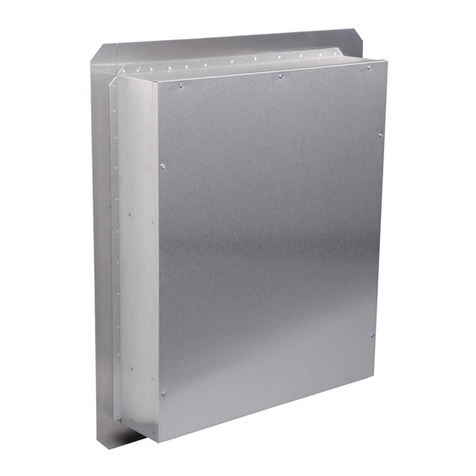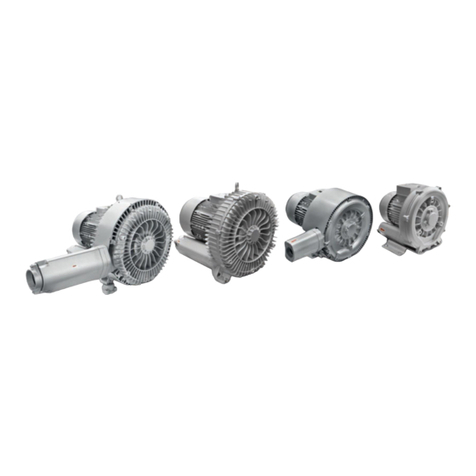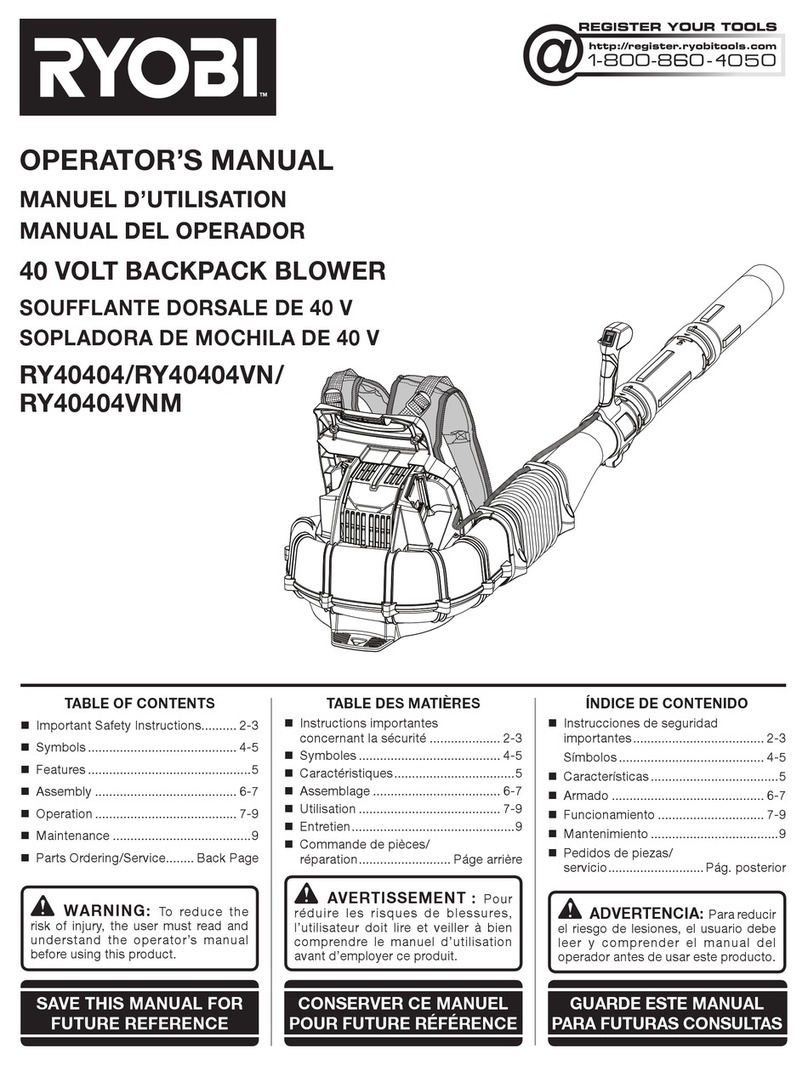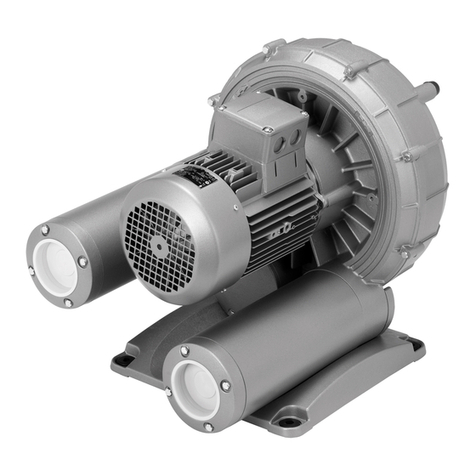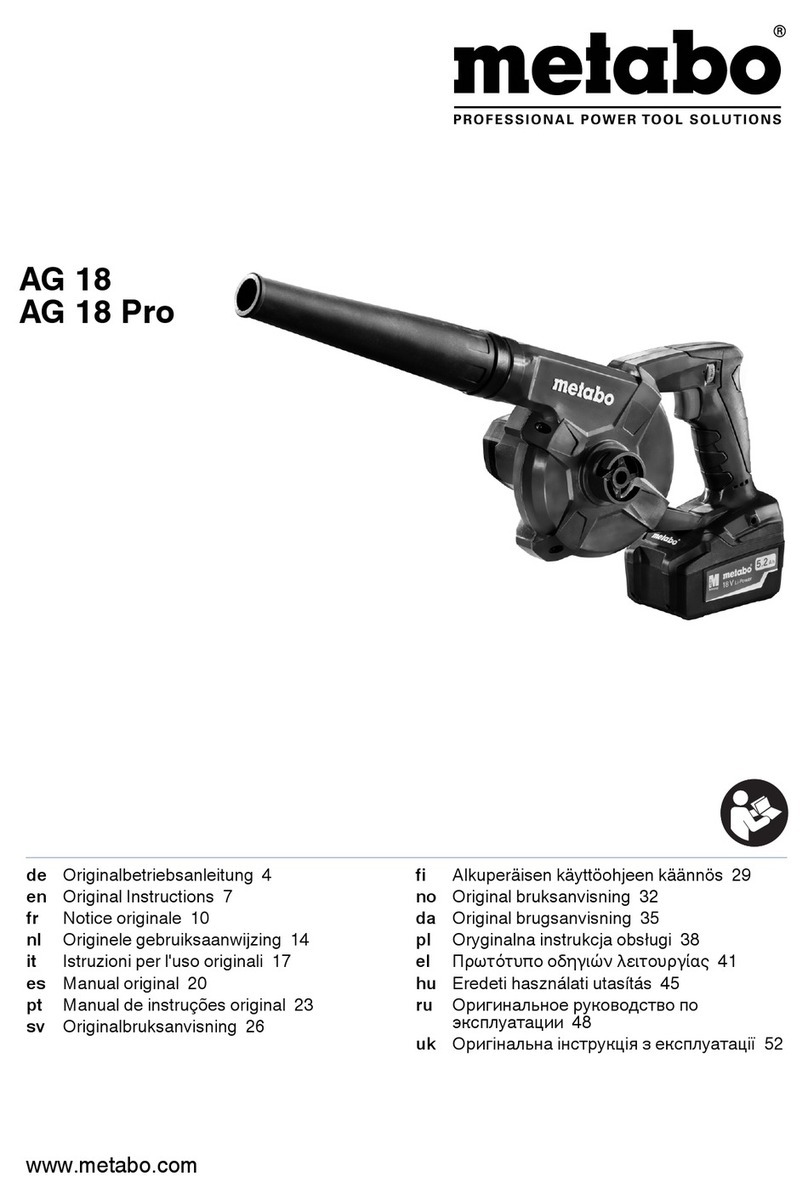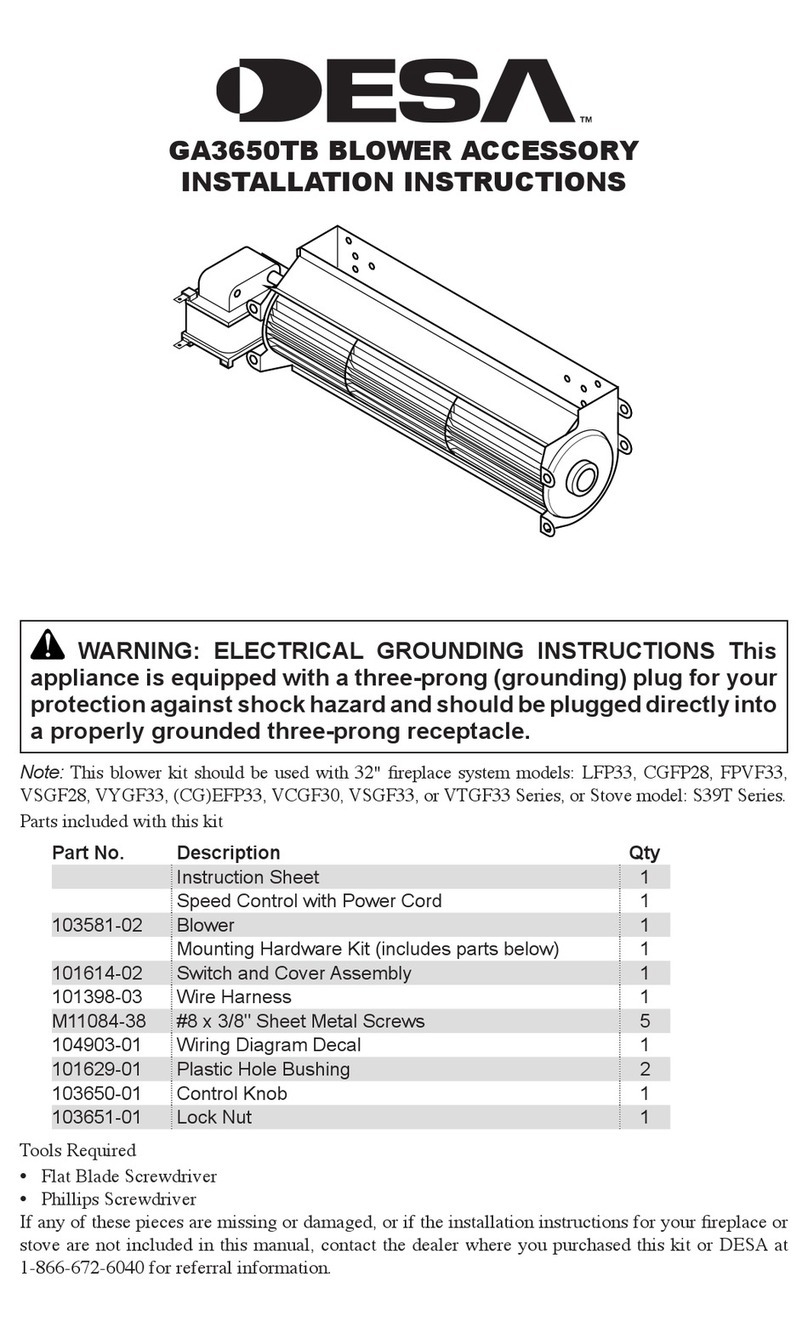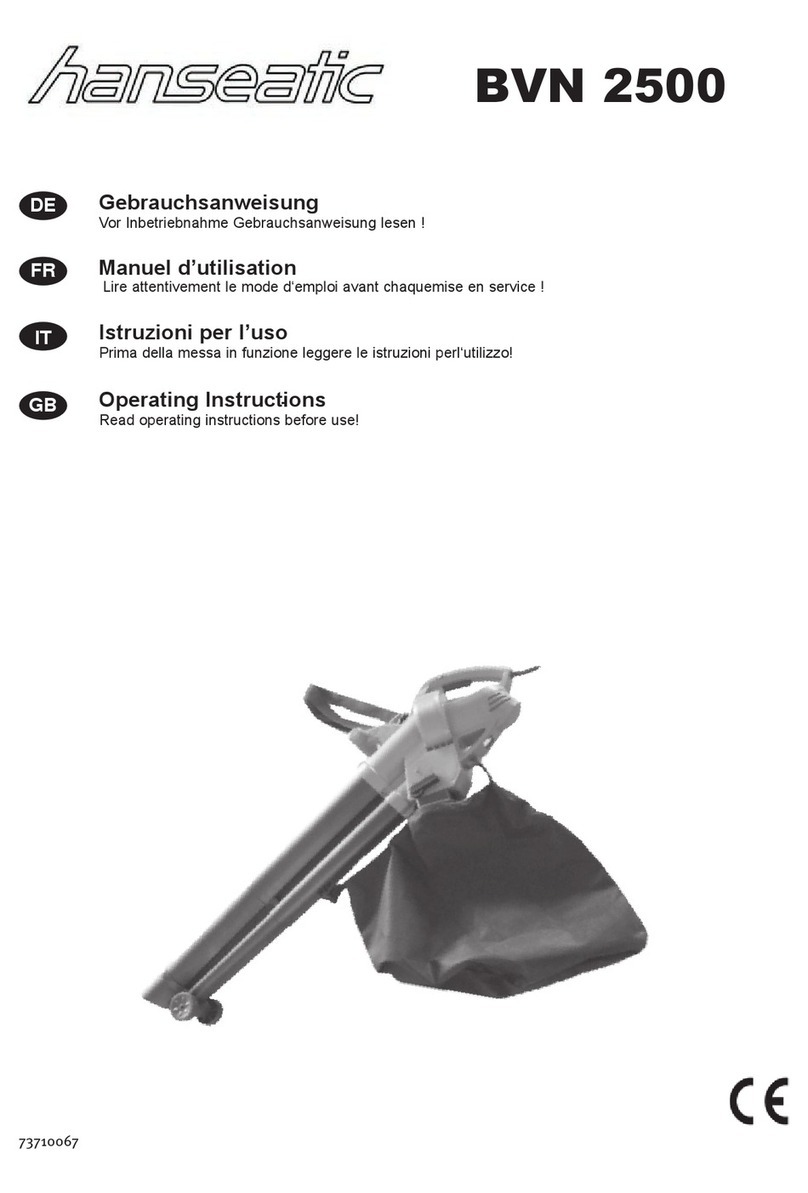
3
7) Ground Fault Circuit interrupter (GFCI)
protection should be provided on the
circuit(s) or outlet(s) to be used for the
gardening appliance. Receptacles are
available having built-in GFCI protection and
may be used for this measure of safety.
8) WARNING -To reduce the risk of electric
shock, use only with an extension cord
intended for outdoor use, such as an
extension cord of cord type SW-a, SOW-a,
STW-a, STOW-a, SJW-a, SJOW-a, SJTW-a,
or SJTOW-a.
9) Extension Cord - Make sure your extension
cord is in good condition. When using an
extension cord, be sure to use one heavy
enough to carry the current your product will
draw. An undersized extension cord will
cause a drop in line voltage resulting in loss of
power and overheating. Table 1 shows the
correct size to use depending on cord length
and nameplate ampere rating. If in doubt, use
the next heavier gage. The smaller the gage
number, the heavier the cord. To reduce the
risk of disconnection of appliance cord from
the extension cord during operating:
i) Make a knot as shown in Figure 1; or
ii) Use one of the plug-receptacle retaining
straps or connectors described in this
manual.
10) Avoid unintentional Starting - Don’t carry
plugged-in appliance with finger on switch. Be
sure switch is off when plugging in.
11) Don’t Abuse Cord - Never carry appliance
by cord or yank it to disconnect from
receptacle. Keep cord from heat, oil, and
sharp edges.
12) Don’t Force Appliance - It will do the job
better and with less likelihood of a risk of
injury at the rate for which it was designed.
13) Don’t overreach - Keep proper footing and
balance at all times.
14) Stay Alert - Watch what you are doing.
Use common sense. Do not operate
appliance when you are tired.
15) Disconnect Appliance - Disconnect the
appliance from the power supply when not in
use, before servicing, when changing
accessories such as blades, and the like.
16) Store idle Appliances indoors - When not in
use, appliances should be stored indoors in
dry, and high or locked-up place - out of reach
of children.
17) Maintain Appliance with Care - Keep
cutting edge sharp and clean for best
performance and to reduce the risk of injury.
Follow instructions for lubricating and
changing accessories. Inspect appliance
cord periodically, and if damaged, have it
repaired by an authorized service facility.
Inspect extension cords periodically and
replace if damaged. Keep handles dry, clean,
and free from oil and grease.
18) Check Damaged Parts - before further use
of the appliance, a guard or other part that is
damaged should be carefully checked to
determine that it will operate properly and
perform its intended function. Check for
alignment of moving parts, binding of
moving parts, breakage of parts, mounting,
and any other condition that may affect its
operation.
A guard or other part that is damaged should
be properly repaired or replaced by an
authorized service center unless indicated
elsewhere in this manual.
Table 1 Minimum gauge
for extension cords
Total length of cord in feet
Ampere rating
more than-not
more than
FIGURE 1
METHOD OF SECURING EXTENSION CORD
(A) TIE CORD AS SHOWN
